1. Breaking a Mirror Brings Seven Years of Bad Luck

It’s one of the most well-known superstitions out there—breaking a mirror brings seven years of bad luck. The origin of this belief dates back to ancient Rome, where it was thought that mirrors reflected not just your image but your soul. If the mirror was broken, it was believed that the soul would be damaged as well, leading to misfortune. Over time, this superstition evolved, with the seven-year period coming from the idea that it takes seven years for a person to renew their body, and thus, their bad luck would persist until then.
Despite its age, this superstition is still common today. People are often quick to warn others if they see a broken mirror, and many will even go out of their way to dispose of it properly. Whether it’s a playful fear or a genuine belief, the idea of bad luck from a broken mirror still lingers in modern life.
2. Knock on Wood to Avoid Tempting Fate
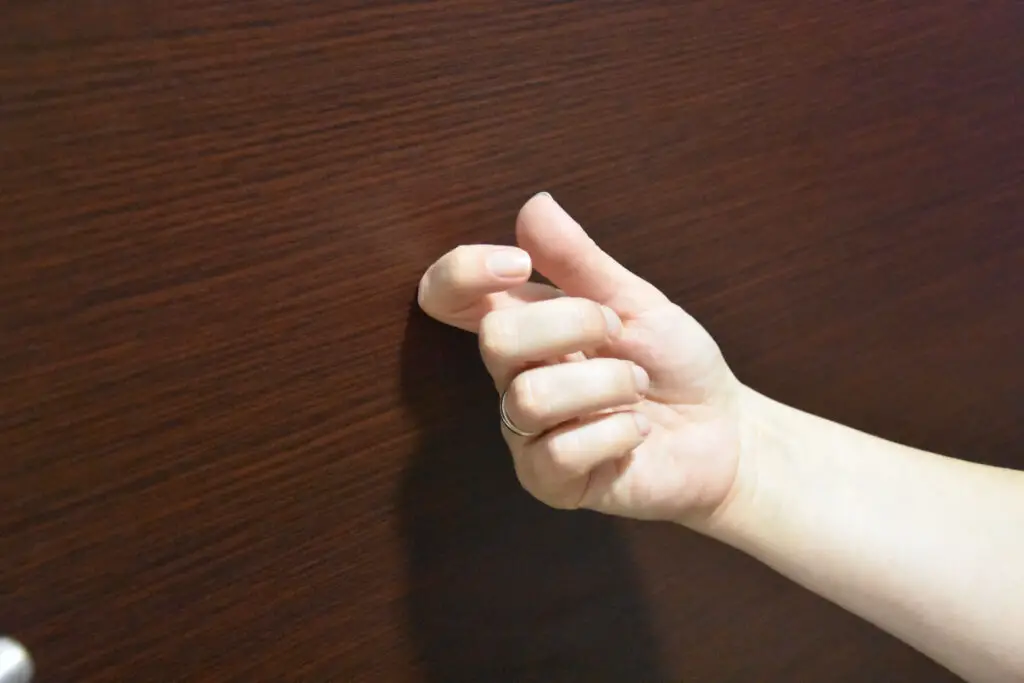
“Knock on wood” is a phrase most of us have used at some point, especially after saying something optimistic or hopeful. It’s meant to ward off bad luck, but where did this tradition come from? One theory ties it to ancient cultures that believed spirits lived in trees, and by knocking on the wood, you could call upon these benevolent spirits for protection. Another theory suggests that it’s a Christian tradition, referencing the wood of the cross as a source of protection.
Today, people continue to knock on wood after mentioning a future event or good fortune, almost as if it will ensure that luck stays on their side. It’s a simple, almost reflexive action that still resonates, even in an age of science and reason.
3. Friday the 13th is Unlucky

Friday the 13th is often considered the unluckiest day on the calendar, but why? The number 13 has long been associated with bad luck, possibly because it follows the number 12, which is considered a symbol of completeness (12 months in a year, 12 signs of the zodiac). In contrast, the number 13 was seen as irregular and incomplete. Additionally, Friday was believed to be an unlucky day because it was the day of the week on which Jesus was crucified.
Even today, people avoid planning major events or making big decisions on Friday the 13th, and some buildings even skip the 13th floor. The day has become a pop culture symbol of bad luck, despite being no different from any other day.
4. Walking Under a Ladder is Bad Luck
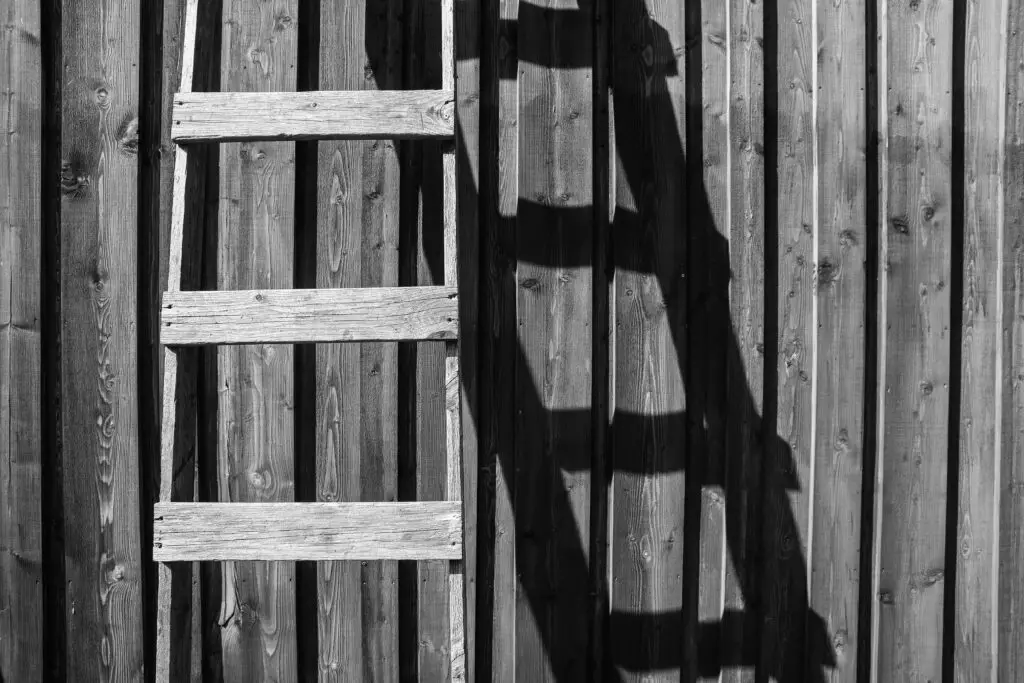
Walking under a ladder is a superstition that many people still try to avoid, but why is it considered unlucky? This belief dates back to ancient Egypt, where the triangle was seen as a symbol of life and the divine. A ladder, leaning against a wall, forms a triangle, and walking through it was thought to break the sacred symbol, inviting bad luck. In Christianity, the triangle was also associated with the Holy Trinity, so walking under a ladder was seen as disrespectful.
Though this superstition may seem a little odd in today’s world, it still influences behavior. Many people will consciously avoid walking under a ladder, even if they don’t fully understand the reason behind it.
5. Black Cats Crossing Your Path

A black cat crossing your path is often seen as an omen of bad luck, but this superstition has a variety of origins. In ancient Egypt, cats were revered and considered to bring good fortune, but during the Middle Ages in Europe, black cats were associated with witches and dark magic. People believed that black cats were witches’ familiars, and seeing one cross your path meant that you were about to fall victim to some kind of misfortune.
Even in modern times, many people still associate black cats with bad luck, despite the fact that these animals are just as lovable and friendly as any other cat. This superstition endures, especially around Halloween when black cats become a focal point of spooky imagery.
6. Spilling Salt Means You Must Throw Some Over Your Left Shoulder

Spilling salt is considered bad luck, and the remedy is to immediately throw a pinch over your left shoulder. This superstition stems from the belief that salt is a symbol of purity and a valuable commodity. To spill it was thought to be an unfortunate event, and the salt would attract evil spirits. Throwing it over your left shoulder, which was believed to be the side of the body closest to the devil, would supposedly ward off the evil spirits and reverse the bad luck.
Despite how quirky it sounds, this superstition remains alive in some households, and spilling salt can still prompt a quick dash for the salt shaker to restore balance.
7. Horseshoes Bring Good Luck
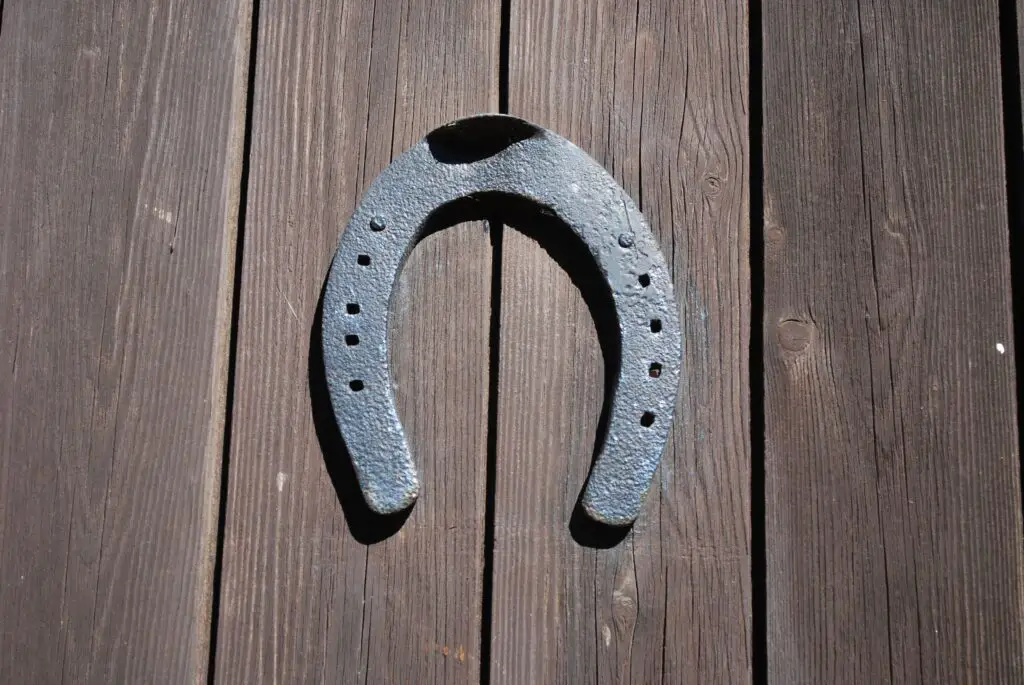
Horseshoes are often seen as symbols of good luck, but their history goes back much further than the modern superstition. In medieval Europe, horseshoes were believed to have magical powers because of their shape—an upward-facing curve that could catch and trap good luck. Iron, which was often used to make horseshoes, was also thought to have protective properties, particularly against evil spirits.
Today, hanging a horseshoe above a doorway is still a common practice in many cultures. Some even make sure the open end faces upward, ensuring that luck doesn’t spill out, while others believe it should face downward to shower the household with good fortune.
8. It’s Unlucky to Open an Umbrella Indoors

Opening an umbrella indoors is considered bad luck, but the origins of this superstition are somewhat unclear. One theory is that umbrellas were once made of very stiff materials, and opening one indoors could cause damage to the furniture or harm someone in the process. Another explanation comes from ancient Egypt, where umbrellas were used to protect royalty from the sun, and opening one indoors was considered an insult to the sun god Ra.
Despite the somewhat practical origin, many people still avoid opening umbrellas indoors. Whether it’s out of superstition or just a general sense of caution, it remains a well-known belief.
9. A Wishbone Should Be Pulled for Good Luck
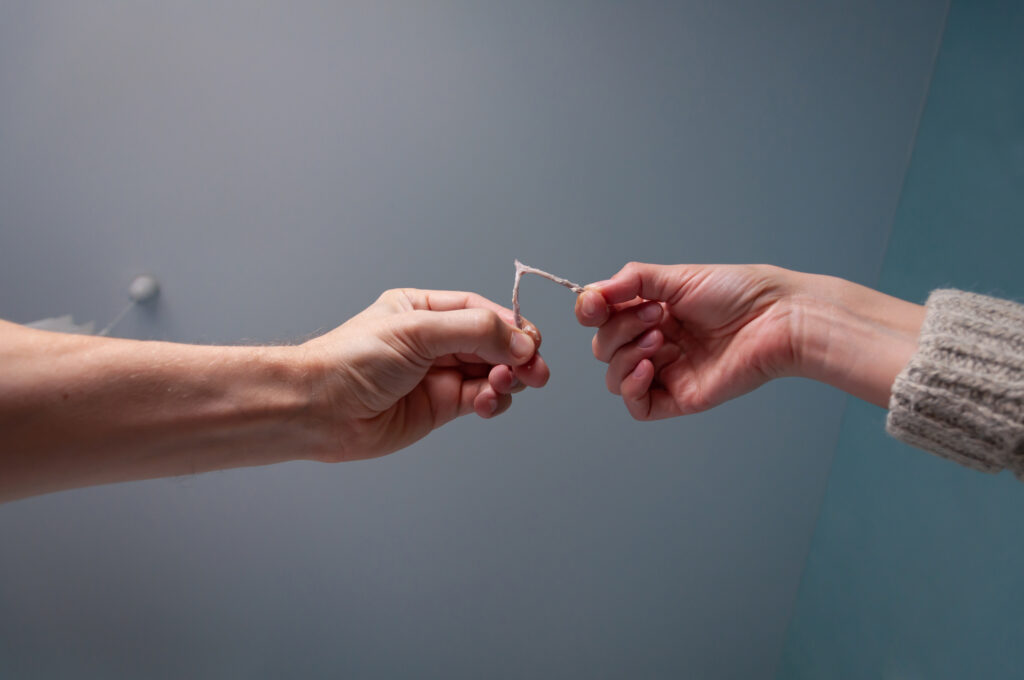
The tradition of pulling a wishbone comes from the ancient practice of augury, where birds’ bones were used to predict the future. In particular, the wishbone of a chicken was thought to hold special powers, and when two people each pulled on either end of the bone, the one who broke off the larger piece was believed to have their wish granted. The tradition is still popular around Thanksgiving when families break the wishbone, hoping for a little extra luck.
Many people still participate in this fun tradition, even if they don’t truly believe in its power. It’s become more of a lighthearted ritual than a deeply held superstition.
10. Lucky Rabbit’s Foot

Carrying a rabbit’s foot as a lucky charm is an enduring superstition, and its roots can be traced to African and Native American traditions. The belief in the rabbit’s foot as a good luck talisman likely originated from the idea that rabbits were quick and elusive animals, capable of evading danger. In African-American folklore, the left hind foot of a rabbit was considered to have magical properties, especially if it was obtained under the right circumstances, such as during a full moon.
Today, people still carry rabbit’s feet as keychains or souvenirs, and many believe that having one will bring them good fortune, even if it’s only a playful superstition.
11. The Evil Eye

The evil eye is a superstition that dates back thousands of years and is found in various cultures around the world. It’s the belief that a malicious glare can cause harm or bad luck, often from envy or jealousy. In many Mediterranean countries, people wear amulets known as “nazar” to protect themselves from the evil eye’s influence. These charms are typically blue and shaped like an eye, meant to deflect negative energy.
While the belief in the evil eye is still strong in some cultures, many people worldwide continue to wear these protective amulets, hoping to ward off any bad fortune or ill will.
12. Finding a Four-Leaf Clover Brings Luck
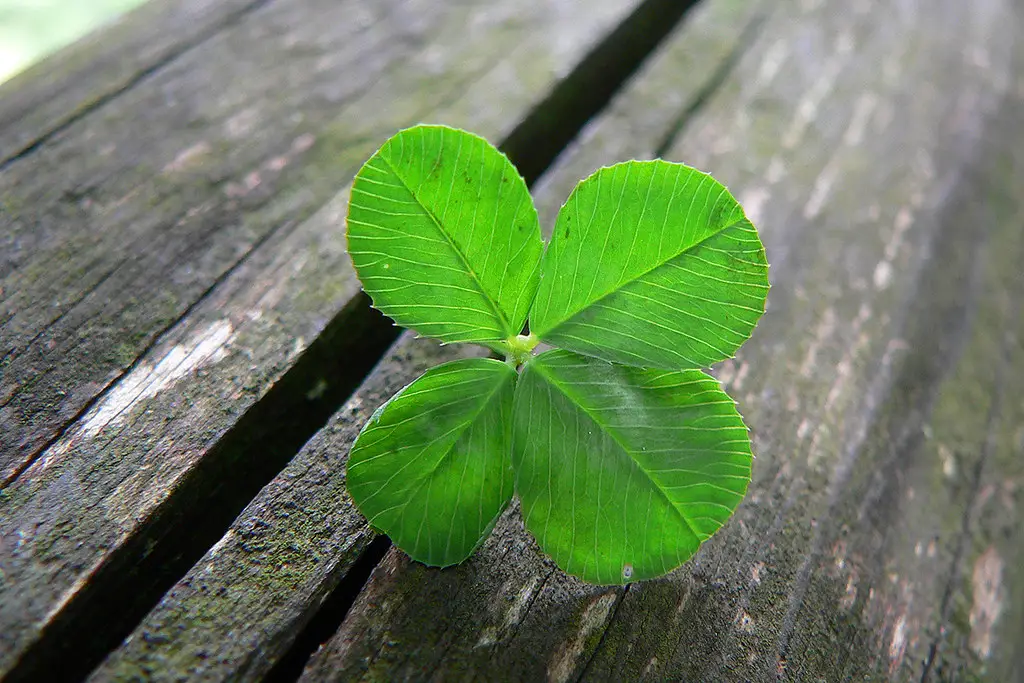
The four-leaf clover is a rare variation of the common three-leaf clover and is believed to bring good luck. Each leaf is thought to symbolize something positive: faith, hope, love, and luck. The rarity of the four-leaf clover—estimated to be about 1 in 5,000 clovers—adds to its mystical allure. Ancient Celtic tribes considered finding one to be a symbol of good fortune, associating it with protection against evil.
Even today, finding a four-leaf clover is often seen as a sign that good things are on the horizon. Many people still make an effort to hunt for one, especially in grassy fields, believing that luck is just a leaf away.
13. Crossing Your Fingers for Good Luck
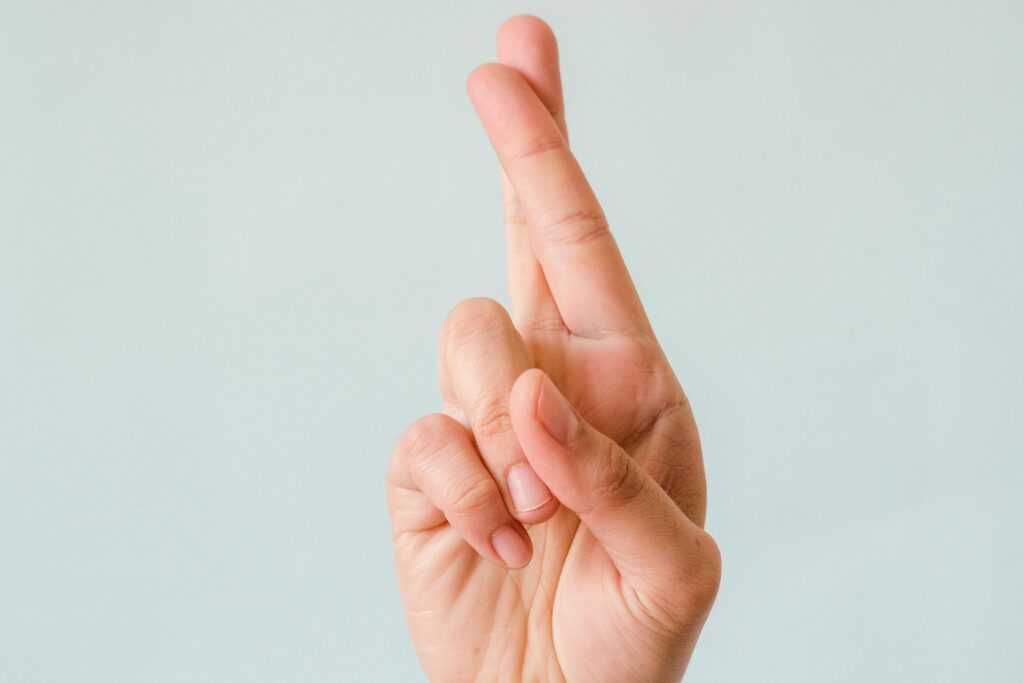
Crossing your fingers for good luck is a common gesture, but it’s tied to some interesting origins. One possibility is that it dates back to early Christianity, when people would cross their fingers to symbolize the Christian cross and hope for divine intervention. Another theory is that it started as a secret symbol used by friends or lovers to wish each other good fortune without others knowing.
Today, crossing your fingers is a simple, universal gesture that many people make when hoping for a positive outcome, whether it’s an exam result, job interview, or something as small as a sports game.
14. Stepping on a Crack Breaks Your Mother’s Back
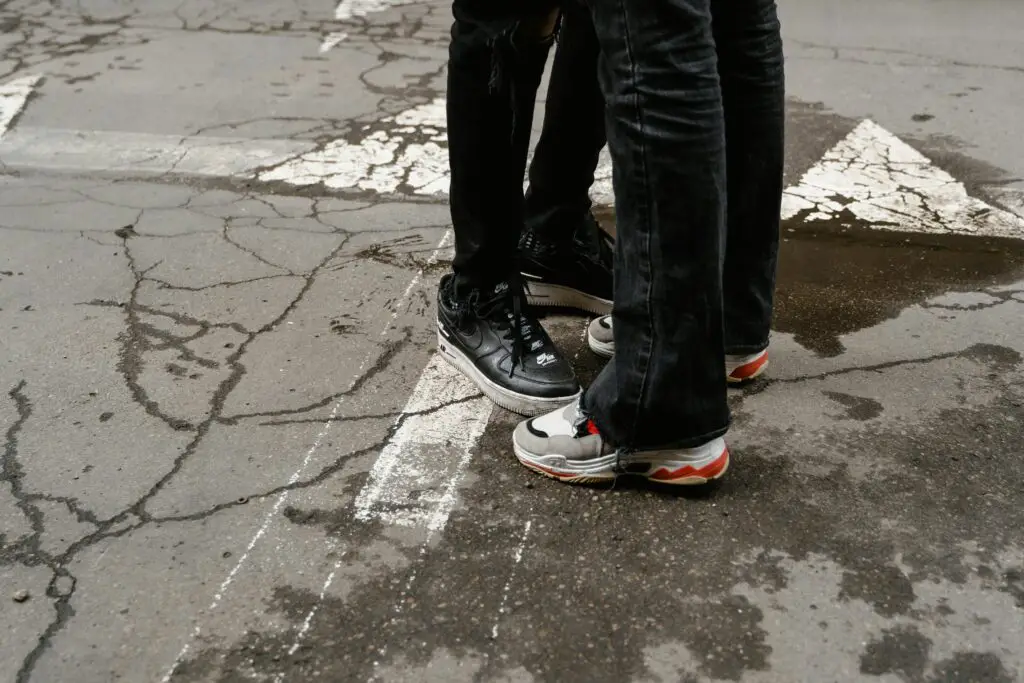
This childhood rhyme is part of the superstition that stepping on a crack in the sidewalk will bring misfortune. The rhyme itself, “Step on a crack, break your mother’s back,” was part of a larger game played by children, where they avoided stepping on cracks as part of the challenge. Its origins are unclear, but some believe it may be linked to the idea that cracks were symbolic of something broken or fractured, representing bad luck.
Even though it’s mostly a childhood game, the superstition still lingers, and adults may still instinctively avoid cracks when walking.
15. A Bird in the House is Bad Luck

A bird flying into the house is considered a bad omen in many cultures. This superstition stems from the belief that birds are messengers, and their presence in the home could signal the arrival of a visitor, illness, or even death. In some cultures, birds are also seen as the souls of the departed, and their presence inside a home might be interpreted as a sign of bad luck or impending loss.
Though most people wouldn’t bat an eye if a bird flew into their home today, the superstition persists in some circles, and many will take steps to ensure the bird is safely released without further incident.
16. Don’t Let Your Purse Touch the Floor

This superstition involves the belief that if your purse touches the floor, you’ll lose money. It’s often heard in the context of a friendly warning, especially when someone casually places their purse on the ground. The superstition has roots in the idea that keeping your money and personal belongings in a clean, elevated place symbolizes prosperity, while letting them touch the floor symbolizes a loss of wealth.
Even though many people may not take it seriously, the act of placing a purse on a counter or chair is still a common practice, in part to avoid any potential bad luck.
